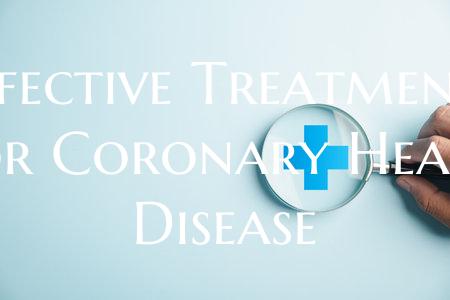
Effective Treatments for Coronary Heart Disease
Coronary heart disease is a common and serious condition that affects the blood vessels supplying the heart muscle. It is also known as coronary artery disease (CAD) and is often caused by a buildup of plaque in the arteries, leading to reduced blood flow to the heart. If left untreated, coronary heart disease can result in serious complications such as heart attacks and heart failure. However, there are several effective treatments available to manage the condition and improve outcomes for those affected.
1. Lifestyle Changes: One of the key components of managing coronary heart disease is making positive lifestyle changes. This includes adopting a heart-healthy diet that is low in saturated fats, cholesterol, and sodium, while high in fruits, vegetables, and whole grains. Regular exercise is also important for maintaining a healthy heart and improving cardiovascular function. Additionally, quitting smoking and reducing stress levels can have a significant impact on reducing the progression of coronary heart disease.
2. Medications: Various medications are used to treat coronary heart disease and its risk factors. Statins are commonly prescribed to lower cholesterol levels and reduce the risk of plaque buildup in the arteries. Blood pressure medications, such as ACE inhibitors and beta-blockers, are used to help control hypertension and reduce the workload on the heart. Antiplatelet medications, such as aspirin, can help prevent blood clots from forming and reduce the risk of heart attacks.
3. Procedures and Surgeries: In some cases, more invasive treatments may be necessary to manage coronary heart disease. These can include procedures such as angioplasty and stent placement to open up blocked arteries and improve blood flow to the heart. Coronary artery bypass surgery may be recommended for individuals with severe blockages in multiple arteries, where a healthy blood vessel is used to bypass the blocked area and restore blood flow.
4. Cardiac Rehabilitation: Cardiac rehabilitation programs are designed to help individuals with coronary heart disease recover after a heart-related event or procedure. These programs typically include exercise training, education on heart-healthy lifestyle habits, and counseling to address emotional and psychological aspects of the condition. Participation in cardiac rehabilitation has been shown to improve outcomes and quality of life for individuals with coronary heart disease.
In conclusion, effective treatments for coronary heart disease involve a combination of lifestyle changes, medications, procedures, and cardiac rehabilitation. It is essential for individuals with this condition to work closely with their healthcare providers to develop a comprehensive treatment plan that addresses their specific needs and reduces the risk of complications. By following these treatment strategies, individuals with coronary heart disease can improve their heart health and overall well-being.